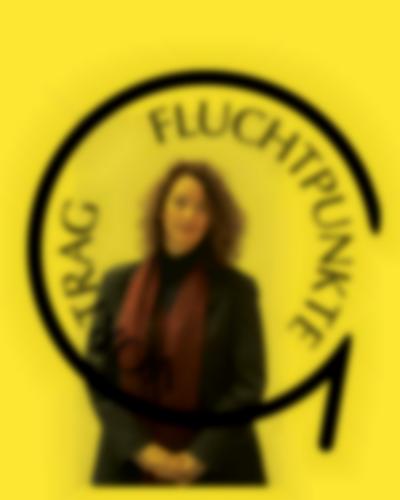LECTURE: Points of Escape. Paths and Resistance of Jewish Exile in Latin America
21. January 2026, 19:00
online
LECTURE: Points of Escape. Paths and Resistance of Jewish Exile in Latin America
21. January 2026, 19:00
online
With the exhibition ESTA LÍNEA ES MI ARMA, the Overbeck-Gesellschaft is dedicating a comprehensive exhibition to the Chilean artist Lotty Rosenfeld (1943–2020) until January 25, focusing on her politically and aesthetically radical work. During the military dictatorship in Chile, Rosenfeld became a key figure in artistic resistance, with actions that transformed public space into a terrain of memory and protest. Her famous sign, the cross on the road, became a symbol of the break with authoritarian structures and the possibility of rewriting history. Against the backdrop of Rosenfeld’s family—her father Ernst Rosenfeld fled Nazi Germany for Latin America in 1935—the exhibition is also a chapter in the narrative of Jewish exile in Latin America.
In this context, Prof. Dr. Liliana Ruth Feierstein’s lecture sheds light on the broader historical and cultural lines of flight that frame Rosenfeld’s commitment. Under the title “Vanishing Points: Paths and Resistance of Jewish Exile in Latin America,” Feierstein introduces a lesser-known but central dimension of transatlantic history: Jewish exile in the Global South.
In this context, Prof. Dr. Liliana Ruth Feierstein’s lecture sheds light on the broader historical and cultural lines of flight that frame Rosenfeld’s commitment. Under the title “Vanishing Points: Paths and Resistance of Jewish Exile in Latin America,” Feierstein introduces a lesser-known but central dimension of transatlantic history: Jewish exile in the Global South.
The South – a terra incognita. Away from the well-known centers of Jewish life in Europe, North America, and Israel, there is a multifaceted, vibrant Jewish history in Latin America: from São Paulo to Mexico City, from Buenos Aires to Santiago de Chile. These mosaics of exile tell stories of flight, new beginnings, intellectual exchange, and resistance—and they deserve to be brought to light.
Between 1933 and 1943, around 100,000 Jews found refuge from Nazi persecution in Latin America. Their arrival not only shaped Jewish life in their host countries, but also permanently changed the cultural and social landscape of the continent. Three groups were particularly influential: psychoanalysts, artists, and rabbis and cantors, who created new spaces for thought and remembrance with their ideas, institutions, and networks.
The lecture focuses on these processes of cultural transfer – and at the same time sheds light on a second historical confrontation with authoritarian regimes: the military dictatorships in the Cono Sur. Many who had once fled fascism in Europe were now once again involved in the resistance – among them artists such as Lotty Rosenfeld, whose work and activism were deeply influenced by her experiences of exile and the global struggles against oppression.
Please register at info@overbeckgesellschaft.de.
After registering, you will receive the Zoom link one day before the scheduled lecture.

